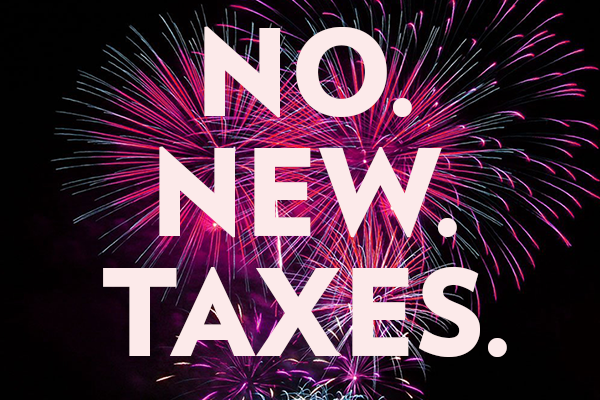Media

House Lawmakers Vote to Protect Taxpayers
Last night, 103 House lawmakers voted for a no-tax, no-borrowing plan that will balance the state budget once fully implemented.
Please take a moment to thank those lawmakers.
The legislation, HB 453, stands in stark contrast to Governor Wolf's $1 billion tax hike ($315 per family of four) and his preferred “compromise”—a $570 million tax hike ($180 per family of four) that passed the state Senate in July.
It is important to note that this revenue plan is not a long-term solution, but neither are tax hikes.
Here are four ways the plan balances the state budget without tapping taxpayers.
1. Transfers funds from the shadow budget. The legislation proposes a transfer of $630 million from shadow budget fund reserves. This includes transfers from the Keystone Recreation, Park and Conservation Fund, two transportations funds and the Race Horse Development Fund. Even after these and other transfers, many of the funds will have cash remaining to pay for emergency needs or contractual obligations.
2. Authorizes the sale of future tobacco settlement revenues. Every year the state receives hundreds of millions of dollars from a Master Settlement Agreement (MSA) with tobacco companies. The House plan proposes the sale of this revenue stream without incurring interest or fee charges that accompany the borrowing proposed in the Senate plan. The pension funds would have the first option to purchase these revenues. In exchange for this up-front payment of $1 billion, the pension funds would get one-third of the MSA revenues over 10 years.
3. Utilizes more than $600 million in one-time revenue sources. In addition to shadow budget fund transfers, the plan includes revenue from lapses (money budgeted in prior years, but never spent by state agencies) $200 million from the Joint Underwriting Association, and $20 million from the legislature’s reserve accounts.
4. Expands gambling and enacts liquor reforms. The details surrounding these two proposals are not yet concrete. However, the house plan calls for gaming expansion which would raise $225 million. Lawmakers are also proposing changes to the state’s liquor system, potentially raising an additional $50 million.
The plan now moves over to the Senate. A straight vote on the plan is preferable, but if the Senate does decide to amend the bill, they should build any changes around two principles: no borrowing and no new taxes. This is a much better alternative to the job killing tax hikes that prolong—even deepen—our economic and budgetary challenges.
At the same time, it is important to note that this revenue plan is not a long-term solution. But neither are tax hikes. Pennsylvania has raised taxes four times in the last eight years, and yet, the state continues to experience budget shortfalls because Harrisburg is unable to control spending.
Getting a handle on this problem requires reducing the costs drivers in state government—specifically welfare and education as well as corrections and corporate welfare spending.
That’s why it’s important to include work requirements for healthy adults on Medicaid in the welfare code (HB 59), an expansion of the EITC (Educational Improvement Tax Credit) in the Education Code, along with teacher seniority reform that protects the most effective teachers in the midst of layoffs.
These reforms are just the beginning of the structural changes needed to grow the economy, solve Pennsylvania’s constant budget troubles and allow Pennsylvanians to flourish.